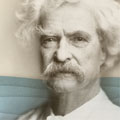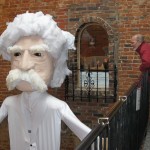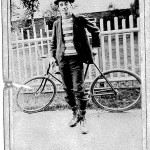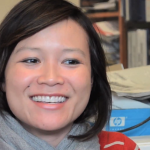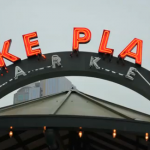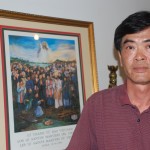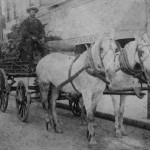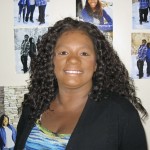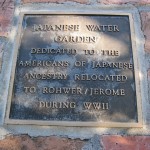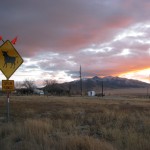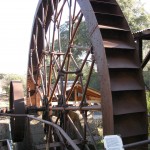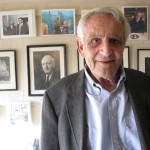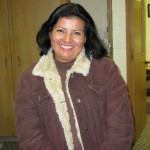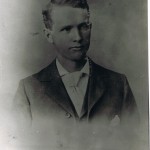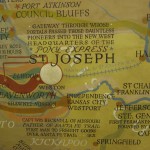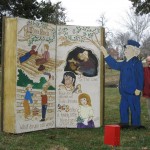One day, an elderly Vietnamese man walked into the office of Người Việt Tây Bắc. He wanted to place a classified ad in the largest and oldest newspaper for Vietnamese immigrants in Washington.
Julie Pham, 33, remembers that day. She is the managing editor of Người Việt Tây Bắc, which literally translates to “Vietnamese People of the Northwest,” a Seattle-based biweekly that’s been in business for 25 years.
The man ran the ad only once. Pham remembers what it said: “Dear Mr. So-and-so, you left your luggage in my house for months now and I need you to remove it.”
Once the paper got into the hands of the Vietnamese community in Seattle, those who knew Mr. So-and-so kindly reminded him of his luggage.
“People are really hungry to feel connected,” Pham said. “I look around and I see that the need for news is growing. There are constant streams of immigration. And they turn to the newspaper to help them understand and acclimate to the world here.”
For Pham, her family’s newspaper stokes a sense of community for the third largest Asian population in the state. It also supported her and her brothers through college. Since Pham was 8 years old, her father, Kim, has been running Người Việt Tây Bắc, an offshoot of the national Người Việt newspaper headquartered in Orange County, Calif.
Pham is charming woman with a ready smile and a well-placed beauty mark. Her speech is thoughtful and her tone business-like. By her own description, she is a businesswoman first, a reporter second. Sitting down with her, it’s evident that economics are on her mind. She is conscious of the economy and the forcefulness of her words, as well as the profit margins of the newspaper. She says things like “capacity building,” “fruitful partnership” and “shoe-string budget.” Content must be “scalable,” business can be “slippery.”
Before all of this, when she was just two months old in 1979, her family decided to flee Vietnam. Pham’s parents tell her that she cried a lot during the escape, but other than the fact that they were hungry, thirsty and unsure of what was going to happen next, her parents never talked much about their experiences as boat people.
Her father delivered pizzas and her mother worked as a dental assistant for their first few years in Seattle. Her father eventually realized that he didn’t like working for other people and that he wanted to have his own business. With the influx of Vietnamese boat people in the Pacific Northwest, he had an idea.
“The Vietnamese community is the most linguistically isolated,” Pham said, “with the highest percentage of limited English proficiency. The newspaper links people with news of their homeland, of Vietnam, and also with local news, so they can understand their new homeland as well.”
Since 1986, Người Việt Tây Bắc has been serving that function, plying the community with everything from news of business openings to dentist recommendations to classified ads subtly asking for the removal of luggage.
The paper also helped shape Pham’s business acumen.
“I always say I got my real-life MBA by working at the newspaper,” Pham said.
Her educational pedigree doesn’t end there. After graduating from UC Berkeley in 2001, Pham received a Ph.D. in history from the University of Cambridge in 2008, as a Gates scholar.
“I learned how American I was by being abroad,” Pham said. After moving to the UK for her doctorate degree, Pham spent time living in France, Germany and the country she left as an infant.
“When I lived in Vietnam, I was constantly getting stood up,” Pham said. “People would cancel last minute all the time and it was driving me crazy. I felt disrespected.”
Later Pham learned from a Vietnamese friend that they weren’t being rude, but that they just wanted her to think something came up at the last minute and they had no choice but to forgo meeting her.
In the UK, she noticed that Americans perceive distance differently than the British do. “When Americans ask how far it is from Seattle to Portland, I could say, ‘It’s a three-hour drive. It’s an hour flight.’ But in the rest of the world, they’ll actually tell you by distance. How many kilometers it is. And that means nothing to me.”
“It’s just different ideas of respect and time,” Pham said.
Pham is sympathetic to second-generation Vietnamese-Americans. In her own experience, she did not really start engaging with Vietnamese culture and understanding her parents on a deeper level until she learned Vietnamese after college. Hers is an American experience, more than it is an immigrant one. By anyone’s measure, Dr. Julie Pham has achieved something that is singly Western, though she acknowledges that it stems from her parents’ hard work and willingness to take risks.
“At the end of the day, ethnic media, they’re all businesspeople,” Pham said. “They’re all immigrant, refugee, minority entrepreneurs.”
Dan Q. Tham
